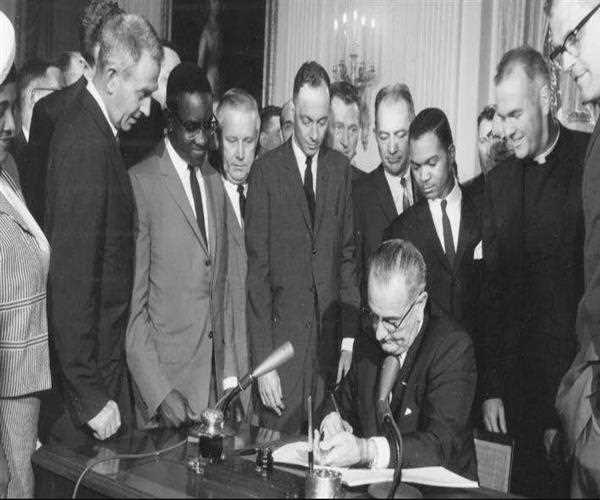
During the 1960s, Americans who knew just the capability of "equivalent security of the laws" anticipated the president, the Congress, and the courts to satisfy the guarantee of the fourteenth Amendment. Accordingly, each of the three parts of the national government- - just as the general population everywhere - discussed a principal sacred inquiry: Does the Constitution's forbiddance of denying equivalent assurance consistently boycott the utilization of racial, ethnic, or sex measures trying to bring social equity and social advantages?
In June 1963, President John Kennedy approached Congress for a complete social liberties bill, initiated by gigantic protection from integration and the homicide of Medgar Evers. After Kennedy's death in November, President Lyndon Johnson squeezed hard, with the help of Roy Wilkins and Clarence Mitchell, to make sure about the bill's entry the next year. In 1964, Congress passed Public Law 88-352 (78 Stat. 241). The Civil Rights Act of 1964 denies separation based on race, shading, religion, sex or public starting point. Arrangements of this social equality act denied separation based on sex, just as, race in employing, advancing, and terminating. The Act precluded separation in open facilities and governmentally supported projects. It likewise reinforced the requirement of casting a ballot rights and the integration of schools.
The Civil Rights Act of 1964 is the country's benchmark social liberties enactment, and it keeps on resounding in America. Section of the Act finished the use of "Jim Crow" laws, which had been maintained by the Supreme Court in the 1896 case Plessy v. Ferguson, in which the Court held that racial isolation suspected to be "discrete however equivalent" was protected. The Civil Rights Act was in the end extended by Congress to fortify requirement of these principal social liberties.
